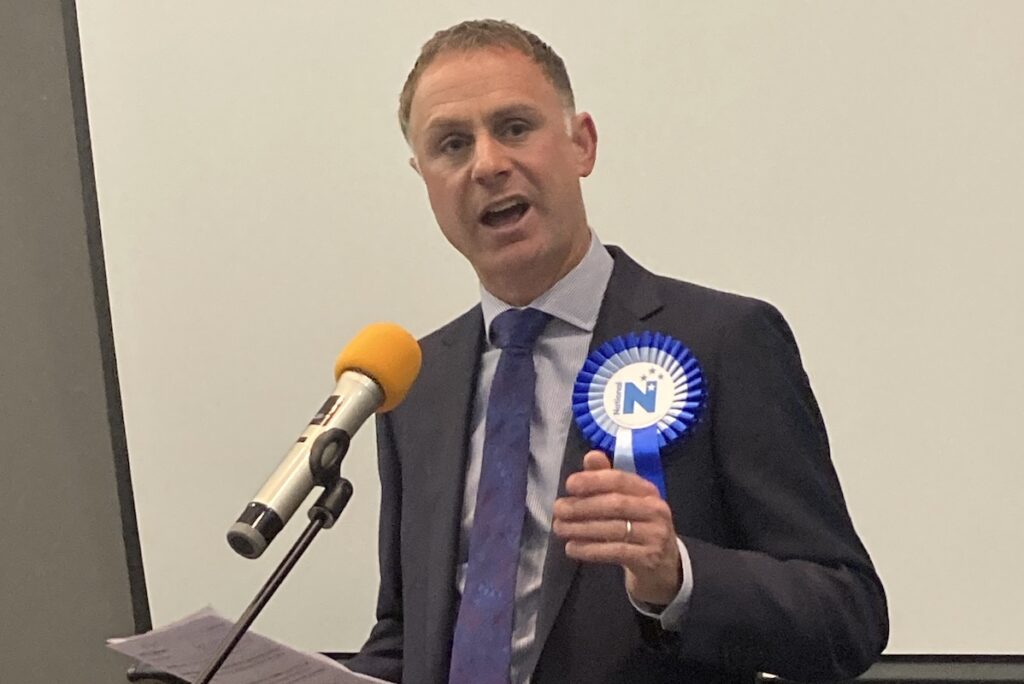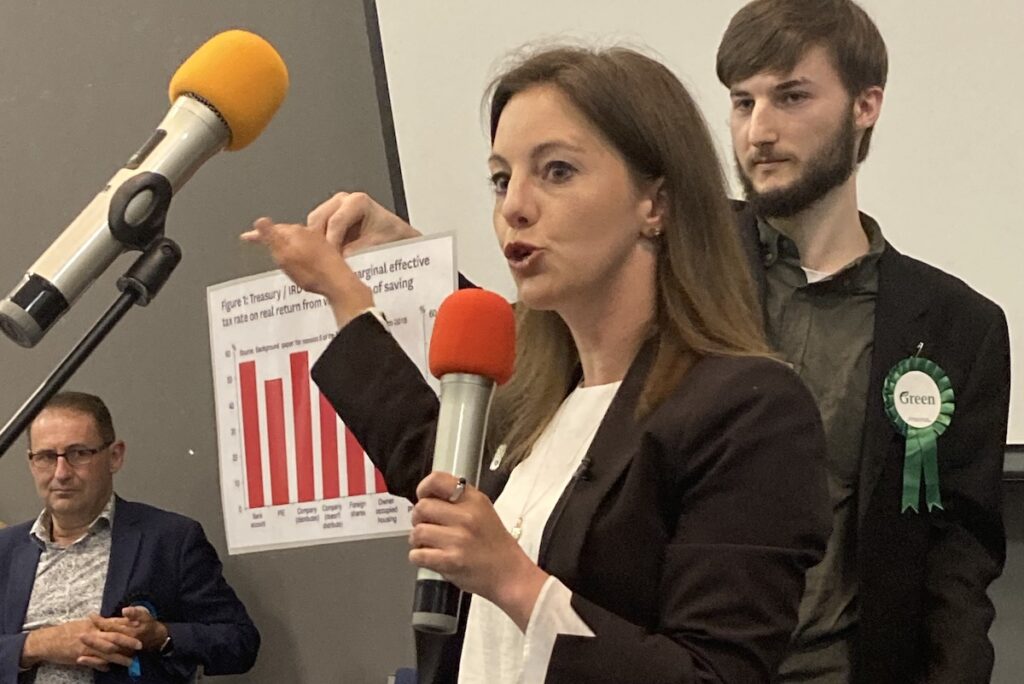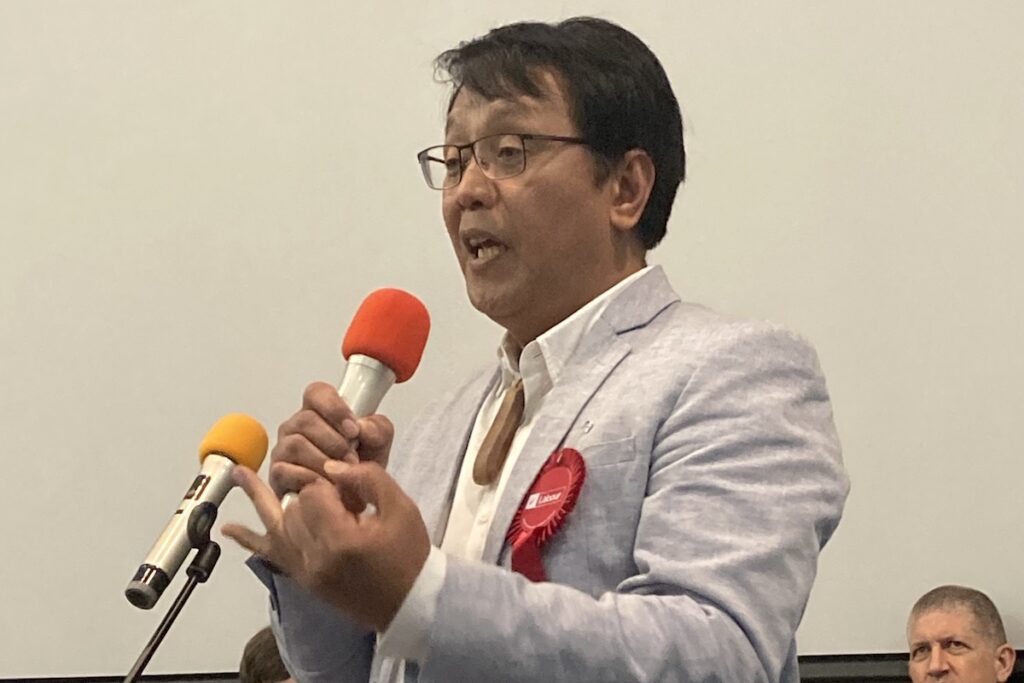What's New
14 October, 2020
Candidates meeting: Likely next MP says Shore needs local focus

Calls for better representation for the North Shore were a feature of an election candidates night in Milford last week.
“I’ve been on the Castor Bay Residents Association for five years now and I’ve never seen [sitting MP] Maggie Barry once,” said an audience member to one of the loudest rounds of applause of the evening.
He wanted to know how the man favoured to take over from the outgoing National MP – who has sat on a big majority for three terms – would stick up for the electorate.
“I’m part of the future, not the past,” Simon Watts replied. He said he was committed to the area and would work without baggage to sort out its issues, including water quality and the economy.
“The Shore needs a local MP focussed on local issues,” he said.
Judging by the applause, it was a message that resonated.
Watts said he was “hugely frustrated” at buck passing between the Devonport-Takapuna Local Board and Auckland Council, but wanted to work with them. He pledged: “I will deliver locally.”
The Act candidate, Nick Kearney, had earlier told the gathering of under 100 people that Watts was all but assured of being the next electorate MP, given that Barry held the seat with a majority of around 14,000 at the 2017 election. But, like other candidates, he emphasised the value of a strategic party vote to deliver a Parliament that represented a range of views. Act would bring rigour to state spending, he said.
TOP candidate Shai Navot, a lawyer and former Carmel College student, called for people to look beyond the “red-blue rewind of the last 30 years” . Housing affordability, inequality and child poverty had steadily worsened over the decades. Issues needed fixing, rather than tinkering with, she said, especially in drawing housing into the tax system and stopping the loading of debt onto the younger generation. A universal basic income was another TOP policy.

Shai Navot of TOP enlisted Ryan Nicholls of the Greens to hold up her housing graph
Labour’s Romy Udanga ended nearly all his comments with a call to “party vote Labour”. He had welcomed the audience to Covid-19 alert-level 1, saying it was good to have a government that looked after people. At one stage he went out of his way to swap to a red-topped microphone to underline the cause. After a lengthy outline of his credentials, Udanga focused most of his policy talk and answers around national issues.

Another to take up the microphone was a candidate from the Outdoors Party, who had not signed up in time to join the official lineup on stage at the Milford Baptist Church. She too called for the party vote, saying: “If you want to vote for the same, you get the same.”
Mike Brewer, a former chief executive of Radio Rhema, who represents the New Conservatives, said: “Last election I voted for National and it was a wasted vote.” He advocated people voting with their hearts, for the party with which they most agreed policy-wise. The New Conservatives believed in citizens-initiated binding referendums on social policies, he said.
Fellow referendum fans, New Zealand First, were not represented.
This is the third general election for which the Milford and Castor Bay Residents Associations have combined to host a debate at the church.
Experienced facilitator Larry Robbins kept the candidates to time during their five-minute set-piece speeches and invited audience questions afterwards. One of his own to Watts – perhaps sparked by several audience comments calling for parties to work together more – was whether Labour and National might consider a “grand coalition”. The reply: “Two ticks blue, party vote National, Simon Watts North Shore.”
The Greens’ Ryan Nicholls from Upper Harbour (filling in for Liz Rawlings, who was unable to attend) said the party would support a Labour Government to ensure climate justice and economic justice were to the fore. The Greens would await the election’s outcome before deciding between a formal coalition with Labour or a confidence-and-supply deal.
Act’s Kearney said his party’s leader, David Seymour, did not seek to be Deputy Prime Minister, as offered by National leader Judith Collins in the hope of forming a centre-right government. Rather, Act wanted debate issue-by-issue and to scrutinise and cut state spending. The “Shane Jones $3 billion ‘elect me’ fund in Northland” needed to be got rid of and so too Winston Peters’ propping up of the horse-racing industry. “Any other business needs to stand on its own two feet – Government has to too.”
In Auckland, 47 per cent of green-house gas emissions were from transport, Nicholls said. To lower this the Greens would aid the uptake of electric vehicles and back public transport. The Northern Busway was an example of how this could succeed, he said, with one-third of people travelling over the Harbour Bridge doing so on buses.
Watts connected with the audience by mixing talk of national policies with local issues. His stated priorities were investment in hospitals, ridding Shore beaches of sewage, fixing congestion, making the area a hub for technology and business and getting started on a second harbour crossing.
He laid out his background in finance, as an ambulance volunteer and a DHB executive, saying he would bring frontline capability and strategic thinking to Parliament.
New Zealanders were taking on loads of debt and felt threatened with a “load of new taxes”, he maintained. He did not specify what these were.
But he did thank locals for the toots when he was out and about in the electorate with his signs.
The Rangitoto Observer can be downloaded online here.

Please consider supporting The Rangitoto Observer by clicking here:

